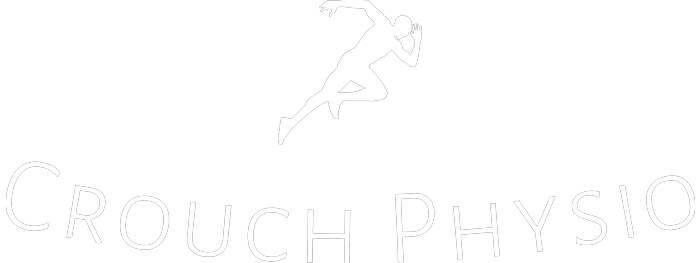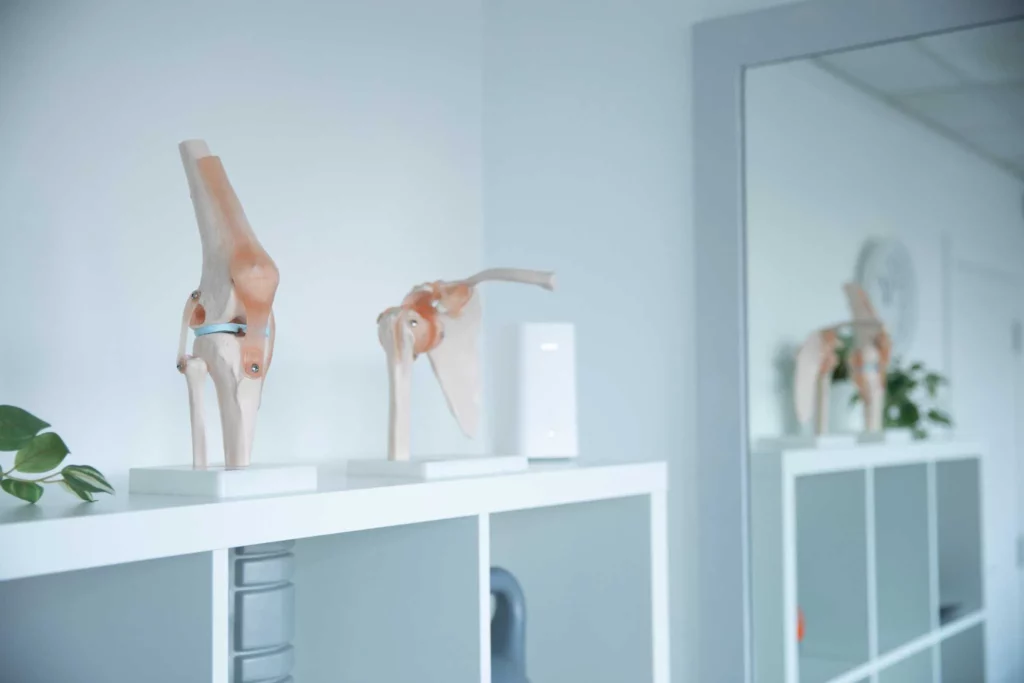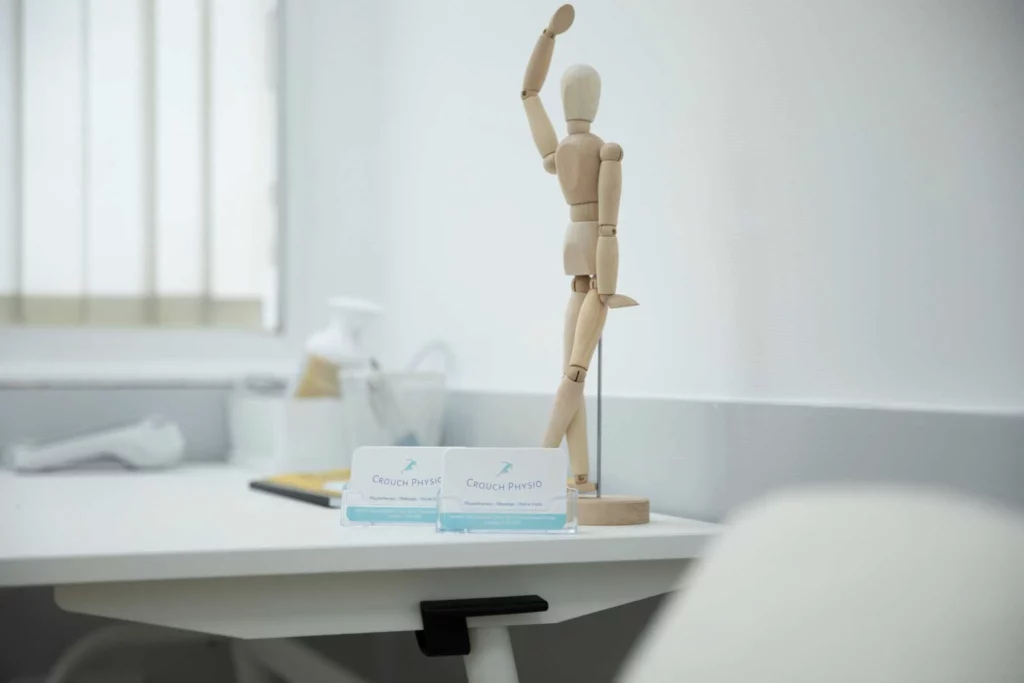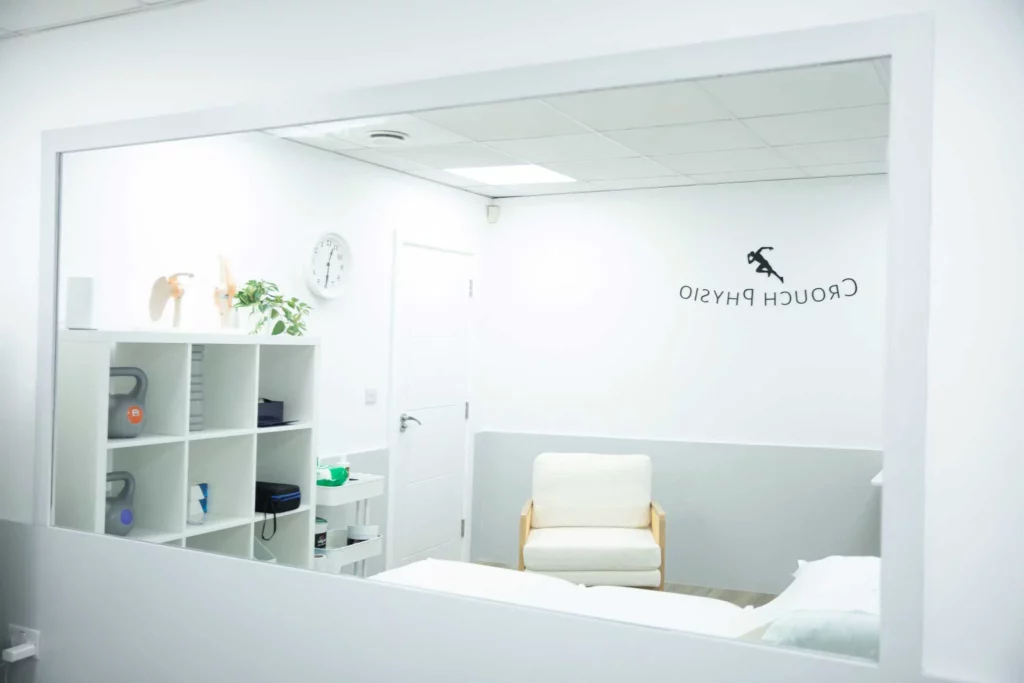If you’ve ever experienced that nagging ache in your knees, you’re not alone. Knee pain is incredibly common, affecting people of all ages and backgrounds. But amidst the discomfort, there’s often a fog of myths and misconceptions swirling around. As a physiotherapist, I’ve seen my fair share of these misconceptions, and it’s time to set the record straight. Let’s debunk some knee pain myths together!
Myth #1: “Knee pain means there’s something seriously wrong with my knee.”
It’s understandable to worry when your knees start acting up, but knee pain doesn’t always signify a severe underlying issue. Often, it’s caused by factors like overuse, muscle weakness, or poor biomechanics. Research shows that even in cases of osteoarthritis, one of the most common causes of knee pain, symptoms can vary widely in severity, and pain doesn’t always correlate with the degree of joint damage [1]. So, don’t panic at the first twinge – consulting a physiotherapist can help pinpoint the cause and develop an effective treatment plan.
Myth #2: “Rest is the best solution for knee pain.”
While rest may provide temporary relief, it’s not always the best long-term solution for knee pain. In fact, prolonged rest can weaken the muscles supporting your knees and exacerbate the problem. According to a study published in the Journal of Orthopaedic & Sports Physical Therapy, exercise-based interventions, including strength training and low-impact activities like swimming or cycling, are more effective than rest alone in reducing knee pain and improving function [2]. So, instead of becoming a couch potato, consider incorporating gentle exercises recommended by a physiotherapist into your routine.
Myth #3: “Knee pain is just a part of aging; there’s nothing I can do about it.”
Sure, knee pain becomes more prevalent as we age, but it’s not an inevitable consequence of getting older. Research suggests that lifestyle factors, such as maintaining a healthy weight, staying physically active, and avoiding smoking, can significantly reduce the risk of developing knee pain and related conditions [3]. Additionally, targeted exercises and physiotherapy interventions can help manage and alleviate existing knee pain, regardless of age.
Myth #4: “Running and other high-impact activities are bad for my knees.”
While it’s true that high-impact activities like running can put stress on your knees, they’re not necessarily harmful when done correctly. In fact, regular running can improve knee joint health by strengthening the surrounding muscles and promoting cartilage health [4]. The key is to listen to your body, gradually increase intensity and mileage, and ensure proper footwear and form. If you’re unsure about starting a running regimen, consulting a physiotherapist or sports medicine professional can provide guidance tailored to your needs.
Myth #5: “I don’t need to see a physiotherapist unless my knee pain is severe.”
Waiting for knee pain to become unbearable before seeking help is like waiting for a small leak to become a flood before fixing it. Physiotherapists are trained to assess and treat a wide range of musculoskeletal conditions, including knee pain, at various stages of severity. Early intervention can prevent minor issues from escalating into more significant problems and help you get back to doing the things you love faster. So, don’t hesitate to schedule an appointment at the first sign of knee trouble.
In conclusion, knee pain may be common, but it doesn’t have to be a source of confusion or despair. By dispelling these myths and embracing evidence-based approaches, we can take control of our knee health and live more active, fulfilling lives. Remember, knowledge is power – so arm yourself with accurate information and don’t let knee pain hold you back!
Our Barnet, Cockfosters & Enfield Physio’s have tons of experience in dealing with all types of hip and lower back pain. Have confidence that our specialist Physiotherapists will closely assess, diagnose & treat you in the correct & evidence-based way for all injuries. You can book an appointment here.
Blog By: Emre Oz (Musculoskeletal Physiotherapist at Crouch Physio).
References:
1. Felson, D.T., Lawrence, R.C., Dieppe, P.A., Hirsch, R., Helmick, C.G., Jordan, J.M., Kington, R.S., Lane, N.E., Nevitt, M.C., Zhang, Y. and Sowers, M., 2000. Osteoarthritis: new insights. Part 1: the disease and its risk factors. Annals of internal medicine, 133(8), pp.635-646.
2. Fransen, M., McConnell, S., Harmer, A.R., Van der Esch, M., Simic, M. and Bennell, K.L., 2015. Exercise for osteoarthritis of the knee. Cochrane database of systematic reviews, (1).
3. Losina, E., Weinstein, A. M., Reichmann, W. M., Burbine, S. A., Solomon, D. H., Daigle, M. E., … & Katz, J. N. (2011). Lifetime risk and age at diagnosis of symptomatic knee osteoarthritis in the US. Arthritis Care & Research, 63(4), 573-580.
4. Lo, G.H., Musa, S.M., Driban, J.B., Kriska, A.M., McAlindon, T.E., Souza, R.B., Petersen, N.J., Storti, K.L., Eaton, C.B., Hochberg, M.C. and Jackson, R.D., 2018. Running does not increase symptoms or structural progression in people with knee osteoarthritis: data from the osteoarthritis initiative. Clinical rheumatology, 37(9), pp.2497-2504.




